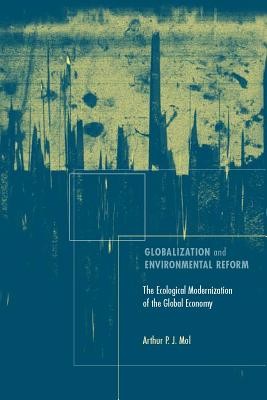
- We will send in 10–14 business days.
- Author: Arthur P J Mol
- Publisher: MIT Press
- ISBN-10: 0262632845
- ISBN-13: 9780262632843
- Format: 15.3 x 22.8 x 1.8 cm, softcover
- Language: English
- SAVE -10% with code: EXTRA
Reviews
Description
Many writers either glorify globalization or vilify it, particularly for its destructive environmental effects. In this book environmental sociologist Arthur Mol provides a more balanced understanding of the relationship between globalization and environmental quality. Mol bases his arguments on his theory of ecological modernization, which holds that although processes of modernization and globalization often result in environmental degradation, they also can encourage policies and programs designed to arrest degradation and improve environmental quality.
Building on earlier ecological modernization studies that focused on Europe, North America, and East and Southeast Asia, Mol takes here a more global perspective. He also addresses the increasing roles of non-state actors, especially international institutions, non-governmental organizations, popular movements, and transnational corporations.
After examining the confusion created by the failure to distinguish among globalization, global capitalism, and neoliberalism, Mol analyzes both globalization's destructive environmental consequences and its contribution to global environmental reform. Elaborating on the subject of reform, he focuses on three case studies, one involving the economic triad of the European Union, the NAFTA region, and Japan; one involving the relationship between the triad and developing countries; and one involving three developing countries: Vietnam, the Netherlands Antilles, and Kenya.
EXTRA 10 % discount with code: EXTRA
The promotion ends in 17d.02:25:05
The discount code is valid when purchasing from 10 €. Discounts do not stack.
- Author: Arthur P J Mol
- Publisher: MIT Press
- ISBN-10: 0262632845
- ISBN-13: 9780262632843
- Format: 15.3 x 22.8 x 1.8 cm, softcover
- Language: English English
Many writers either glorify globalization or vilify it, particularly for its destructive environmental effects. In this book environmental sociologist Arthur Mol provides a more balanced understanding of the relationship between globalization and environmental quality. Mol bases his arguments on his theory of ecological modernization, which holds that although processes of modernization and globalization often result in environmental degradation, they also can encourage policies and programs designed to arrest degradation and improve environmental quality.
Building on earlier ecological modernization studies that focused on Europe, North America, and East and Southeast Asia, Mol takes here a more global perspective. He also addresses the increasing roles of non-state actors, especially international institutions, non-governmental organizations, popular movements, and transnational corporations.
After examining the confusion created by the failure to distinguish among globalization, global capitalism, and neoliberalism, Mol analyzes both globalization's destructive environmental consequences and its contribution to global environmental reform. Elaborating on the subject of reform, he focuses on three case studies, one involving the economic triad of the European Union, the NAFTA region, and Japan; one involving the relationship between the triad and developing countries; and one involving three developing countries: Vietnam, the Netherlands Antilles, and Kenya.


Reviews